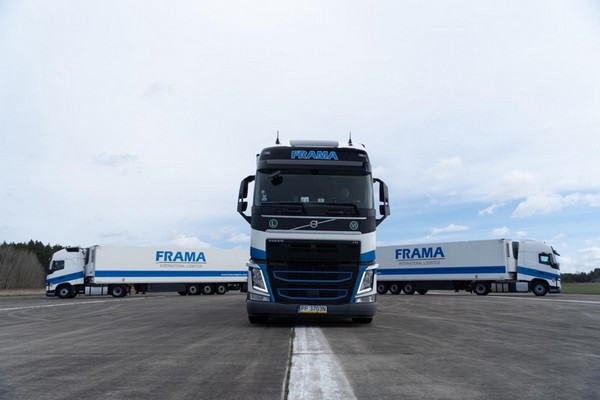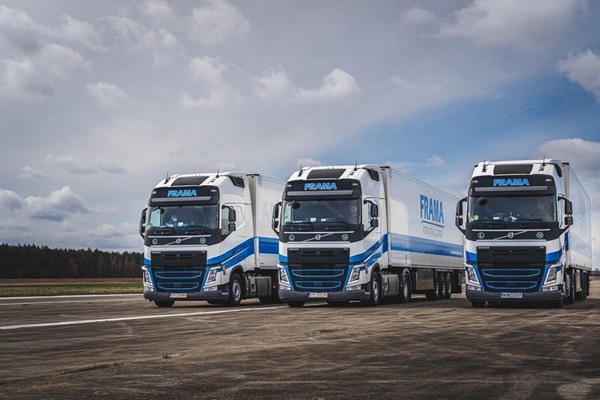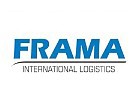Early potatoes from Egypt, carrots from southern Italy or French leafy vegetables: for the forwarding company Frama GmbH, based in Eichenau, Bavaria, the transport of seasonal fruit and vegetable products has been part of everyday practice for twelve years now. However, in many respects, fruit logistics is losing out to other sectors.
transport of seasonal fruit and vegetable products has been part of everyday practice for twelve years now. However, in many respects, fruit logistics is losing out to other sectors.
Founded in 2012, the company initially focussed on the road transportation of temperature-sensitive goods (-20 to +20 degrees) between Germany and Italy, says Francesco Polentino (r), one of the two founders and managing directors. "Our activities have gradually developed from this basis. Today, we are active throughout the EU. In the fruit and vegetable sector in particular, we focus primarily on the most important growing countries, like Spain, Italy, and France. I also have a strong feeling that many Moroccan goods flows are channelled through Spain and distributed from there. Apart from that, we are also noticing that Eastern Europe is becoming increasingly important, not just in the fruit and vegetable transport sector, but across the board." Frama GmbH now also has sites in Pila (Poland) and Almeria (Spain).

Frama GmbH primarily transports fresh fruit and vegetables from all over Europe to the central warehouses.
Early potatoes and salads
Fruit and vegetable transport accounts for around a fifth of total turnover. In contrast to the other segments in which Frama GmbH operates, the order situation for fruit and vegetables fluctuates greatly depending on the season. "In spring, for example, we transport tonnes of carrots from Sicily for the German food retail sector. Another constant mainstay is the transport of Egyptian early potatoes, which usually arrive in the seaports of Trieste or Koper and are distributed from there, particularly to Germany and Scandinavia. For us, the transport of early potatoes is a historic business that we have been involved in since the company was founded in 2012. We also have the impression that the transport volume is increasing rather than decreasing," says Polentino.
Another growth market is the French business, with route transport to Brittany in particular gaining in importance, Polentino continues. "We mainly transport frozen goods such as pasta to Brittany and then load salads and vegetables as return loads. This mainstay has developed strongly over the past two years. What helps us here is that only a few freight forwarders are involved in this segment."

Difficult market environment
Due to the toll increase, CO2 tax and other cost increases, the general conditions in the freight forwarding industry have become anything but easier. Polentino: "A lot is being done against the forwarding companies, which is why it is becoming more difficult to remain competitive. In short, costs continue to rise while freight prices remain the same or even fall. As a result, many medium-sized companies are experiencing financial difficulties, which is already leading to mergers and insolvencies. We ourselves are in the fortunate position that we have done quite well in recent years and have built up a loyal customer base."
The company still operates purely as a freight forwarder for temperature-sensitive goods, while many of its colleagues in the industry now also offer additional services such as interim storage and commissioning. "We are also considering offering such services at our Spanish site in the future. But that's all still up in the air." The company is also aiming to further expand its customer base, although the focus will not be so much on fruit and vegetables. "Fruit logistics is extremely stressful and risky, if only because of just-in-time delivery and the risk of complaints. Despite the higher price, other segments are often more attractive," Polentino concludes.
Photo credit: FRAMA International Logistics GmbH
For more information:
Francesco Polentino
FRAMA International Logistics GmbH
Ringstr. 48
DE-82223 Eichenau
T: +49 81 4136 3651 1
polentino@frama-logistics.com
www.frama-logistics.com
